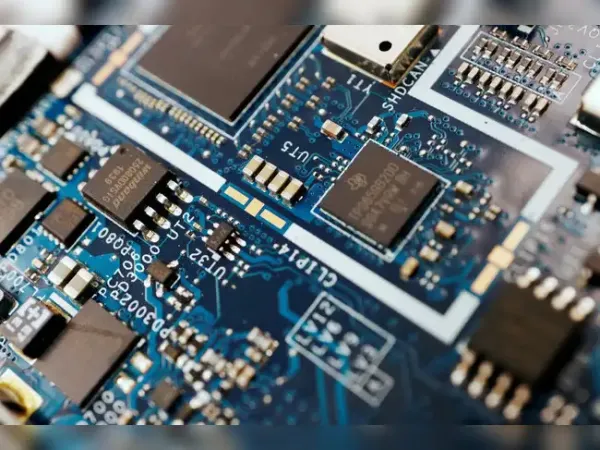Japan is investing aggressively in India’s semiconductor ambitions, while countries like South Korea and Taiwan race to catch up, as India builds its chip manufacturing ecosystem from the ground up, multiple industry sources said.
Japanese companies, which have traditionally had a strong presence in India, were among the first to spot the opportunity – bringing in cutting-edge equipment to help lay the foundation for a homegrown semiconductor industry.
“Japan’s unique strength is machinery and raw materials,” Takashi Suzuki, director general at Japan External Trade Organisation (Jetro), told ET. “Japanese companies have more than 30% market share in global semiconductor manufacturing equipment and 48% in parts and materials, playing an essential role in supporting the semiconductor supply chain.”
Suzuki went on to add that as per the organisation’s survey, the US' FDI investments in India went up from 11 between the period of 2017 to 2020 to 30 between the period of 2021 to 2024, a 172% growth rate.
In contrast, Japan's FDI investments in India increased from one between 2017 to 2020 to eight between 2021 to 2024 -- marking a 700% increase -- the highest growth rate amongst other countries.
Japan also sent a 75-member strong delegation – the highest for any country – for last month’s SemiConnect event in Gujarat that brought together stakeholders from across the ecosystem.
South Korea and Taiwan are among nations keen to close the gap with Japan in India and are looking to double down on their presence in the country in this space, experts said.
“Korea has recently woken up to the opportunities related to the growing semiconductor industry in India,” Heikki Ranta, chairman of the Finland Chamber of Commerce and Industry in Korea said. “Until now, Korea has mainly followed Korean conglomerates as subcontractors to India. The country has grown to be a powerful nation in production of semiconductors and, in the process, has also developed indigenous world class technologies for the production process which can be invaluable additions for India.”
Zena Chung, founder president of the Indo-Korea Business Culture Centre, said Korean companies are “excited” about the opportunity that India provides in the space.
“India is coming up as a manufacturing hub that is being looked into by companies looking to diversify away from China,” she said. “More Korean companies should come to India and that is what India must try to provide them with more environment friendly surroundings to facilitate them and to make them feel at home away from home. Only then, we can look forward to replicate the same kind of success that Japanese companies have had in India and see the semiconductor opportunity as one that is ripe for picking by high tech Korean companies that are leaders in the semiconductor space."
Sana Hashmi, fellow at the Taiwan-Asia Exchange Foundation, said Taiwanese and South Korean semiconductor companies seem to be “closely observing and learning” from the success of Japanese companies in India, and their strategies reflect the same.
“Japanese companies, with their extensive experience and strong presence, have set a benchmark for how to navigate the Indian market,” Hashmi said. “Taiwanese and South Korean companies are learning from the Japanese model by focusing on partnerships, adapting to India’s regulatory landscape, and tapping into local talent, while also pushing for similar levels of technological advancement and infrastructure development.”
However, she said the companies still had a long way to go. Where Japanese semiconductor companies have had an edge is that they see the Indian market as a huge opportunity for growth, especially with increasing demand for technologies like automotive, IoT, and 5G.
“With the Indian government’s push for more local production and PLI, it’s become an attractive place for investment,” Hashmi explained. “Companies like Tokyo Electron and Renesas are eager to team up with local players to help create a strong supply chain and bring their expertise to the table. They also recognise the potential of India’s young, tech-savvy workforce, which they can help train and develop.”
She said for these companies, the Indian market is not just a chance to expand, but also an opportunity to be part of the country’s long-term growth in the tech world.
Japanese companies, which have traditionally had a strong presence in India, were among the first to spot the opportunity – bringing in cutting-edge equipment to help lay the foundation for a homegrown semiconductor industry.
“Japan’s unique strength is machinery and raw materials,” Takashi Suzuki, director general at Japan External Trade Organisation (Jetro), told ET. “Japanese companies have more than 30% market share in global semiconductor manufacturing equipment and 48% in parts and materials, playing an essential role in supporting the semiconductor supply chain.”
Suzuki went on to add that as per the organisation’s survey, the US' FDI investments in India went up from 11 between the period of 2017 to 2020 to 30 between the period of 2021 to 2024, a 172% growth rate.
In contrast, Japan's FDI investments in India increased from one between 2017 to 2020 to eight between 2021 to 2024 -- marking a 700% increase -- the highest growth rate amongst other countries.
Japan also sent a 75-member strong delegation – the highest for any country – for last month’s SemiConnect event in Gujarat that brought together stakeholders from across the ecosystem.
South Korea and Taiwan are among nations keen to close the gap with Japan in India and are looking to double down on their presence in the country in this space, experts said.
“Korea has recently woken up to the opportunities related to the growing semiconductor industry in India,” Heikki Ranta, chairman of the Finland Chamber of Commerce and Industry in Korea said. “Until now, Korea has mainly followed Korean conglomerates as subcontractors to India. The country has grown to be a powerful nation in production of semiconductors and, in the process, has also developed indigenous world class technologies for the production process which can be invaluable additions for India.”
Zena Chung, founder president of the Indo-Korea Business Culture Centre, said Korean companies are “excited” about the opportunity that India provides in the space.
“India is coming up as a manufacturing hub that is being looked into by companies looking to diversify away from China,” she said. “More Korean companies should come to India and that is what India must try to provide them with more environment friendly surroundings to facilitate them and to make them feel at home away from home. Only then, we can look forward to replicate the same kind of success that Japanese companies have had in India and see the semiconductor opportunity as one that is ripe for picking by high tech Korean companies that are leaders in the semiconductor space."
Sana Hashmi, fellow at the Taiwan-Asia Exchange Foundation, said Taiwanese and South Korean semiconductor companies seem to be “closely observing and learning” from the success of Japanese companies in India, and their strategies reflect the same.
“Japanese companies, with their extensive experience and strong presence, have set a benchmark for how to navigate the Indian market,” Hashmi said. “Taiwanese and South Korean companies are learning from the Japanese model by focusing on partnerships, adapting to India’s regulatory landscape, and tapping into local talent, while also pushing for similar levels of technological advancement and infrastructure development.”
However, she said the companies still had a long way to go. Where Japanese semiconductor companies have had an edge is that they see the Indian market as a huge opportunity for growth, especially with increasing demand for technologies like automotive, IoT, and 5G.
“With the Indian government’s push for more local production and PLI, it’s become an attractive place for investment,” Hashmi explained. “Companies like Tokyo Electron and Renesas are eager to team up with local players to help create a strong supply chain and bring their expertise to the table. They also recognise the potential of India’s young, tech-savvy workforce, which they can help train and develop.”
She said for these companies, the Indian market is not just a chance to expand, but also an opportunity to be part of the country’s long-term growth in the tech world.








